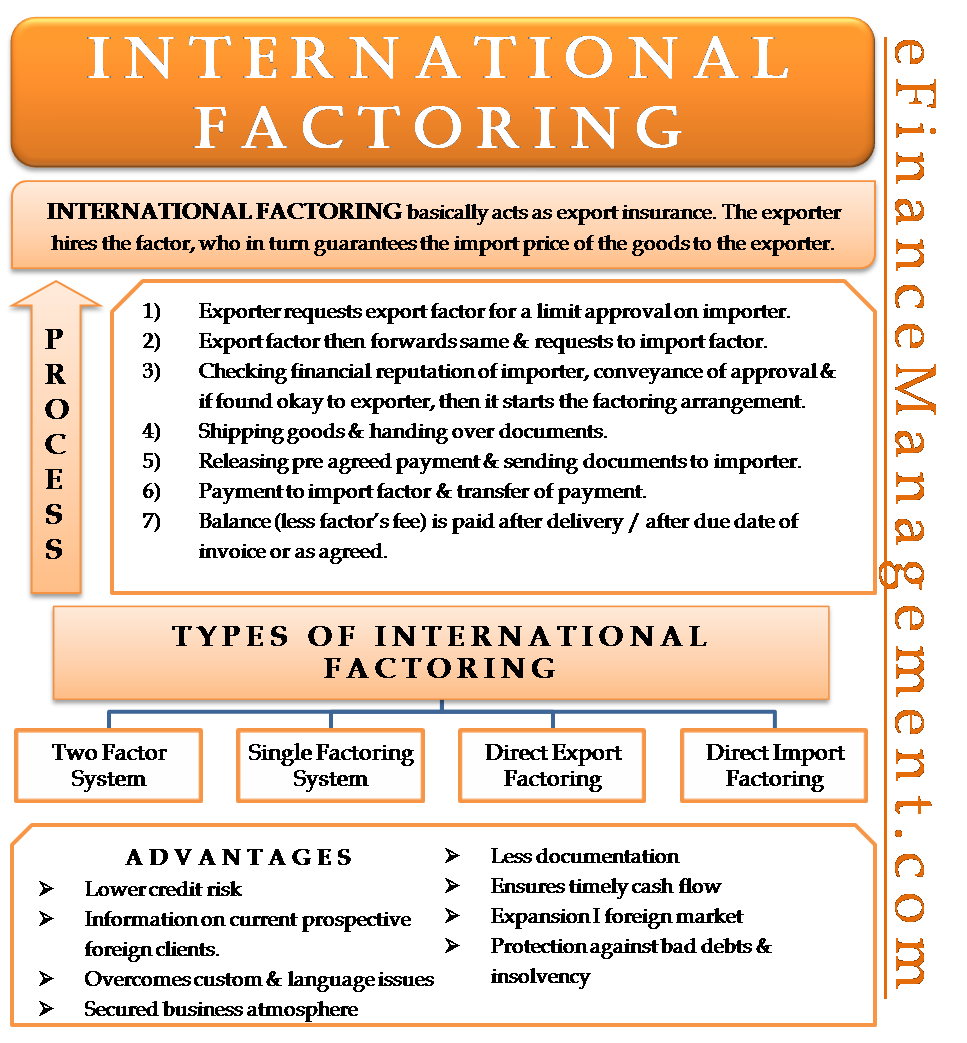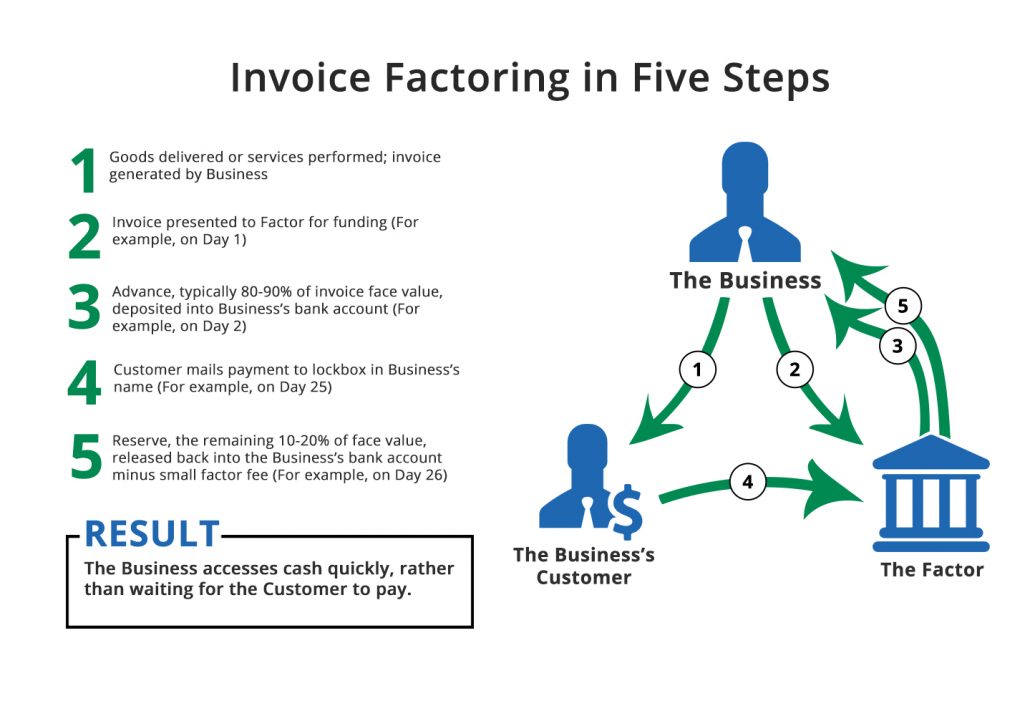
Nonetheless, a startup business with no corporate history may be turned down by more traditional lenders, and so must use factoring as its main avenue to gain access to cash. Consequently, borrowers typically review other types of financing arrangements before they turn to factoring as an option. The fees associated with factoring are quite high, making this one of the more expensive financing alternatives available. This approach is least visible to customers. Borrower Has ControlĪccounts receivable are essentially used as collateral on a cash advance from a lender, but the borrower maintains control over the receivables and collects from customers. This approach reduces the risk of non-payment for the lender. The lender monitors all receivables due from the customers of the borrower, and has payments sent to the lender's designated location. The lender advances a certain percentage of the receivable balances to the borrower, and commits to collect the receivables. Thus, there is an inherent tension between the parties regarding how a factoring arrangement is to be set up. However, giving the borrower control over receivables makes it less likely that the lender can collect on the receivables in the event of a default by the borrower. Lets say you’re going to finance a 50,000 invoice with 30-day terms. From the perspective of the borrower, there is a strong incentive to keep customers from knowing about any factoring arrangements, since factoring gives the appearance of the business having shaky finances. With factoring, youre selling your invoices to a factoring company at a discount. There are several variations on the factoring concept, which are noted below. Summary: Factoring is a form of financing that helps companies with cash flow problems due to slow-paying clients. A factoring arrangement can be extended by constantly rolling over a new set of accounts receivable if so, a borrower can may have a base level of debt that is always present, as long as it can sustain an equivalent amount of receivables. This type of borrowing is intended to be short-term, so that borrowed funds are repaid as soon as the associated accounts receivable are paid by customers. Factors are usually willing to advance funds quite rapidly under this type of arrangement.

The essential role of the factoring companies is given by taking the place of. The borrower is willing to accept a factoring arrangement when it needs cash sooner than the payment terms under which its customers are obligated to pay. Also, the factoring may be considered both a commercial and financial activity. Usually, the factor will then work with the end customers to collect payments, remove their fees and send the remaining income onto the company.Factoring is the use of a borrowing entity's accounts receivable as the basis for a financing arrangement with a lender. Depending on the business, they may take over an element of the finance function from the business and advance a proportion of the funds (in relation to the invoice value) to the company soon after invoices are sent out. A finance company (the factor) will look at the strength of the customers, the borrower and further possible security offered.

A key differentiator of Factoring is that typically the finance provider becomes responsible for managing the debtor. These are usually 30, 60, 90 and 120 day payment terms. Factoring is a form of Receivables Purchase, in which sellers of goods and services sell their receivables (represented by outstanding invoices) at a discount to a finance provider (commonly known as the ‘factor’). In simple terms, a company will send out an invoice to a customer, who will have pre-agreed payment terms. However, the industry, size and growth trajectory of the business will all be looked at.

It is typically used with smaller businesses who have little or no credit control. This allows them to have more control and most invoices are discounted when they are sent out.

Invoice factoring is most typically used where the funder manages the customer collections and ledgers of the business.


 0 kommentar(er)
0 kommentar(er)
